9 Creative Uses for Leftover Paint That Are So Pretty People Will Think They Were Always the Plan
It can be hard to know what to do with an awkward amount of leftover paint, but these clever projects will put it to good use

Seraphina Kyprios
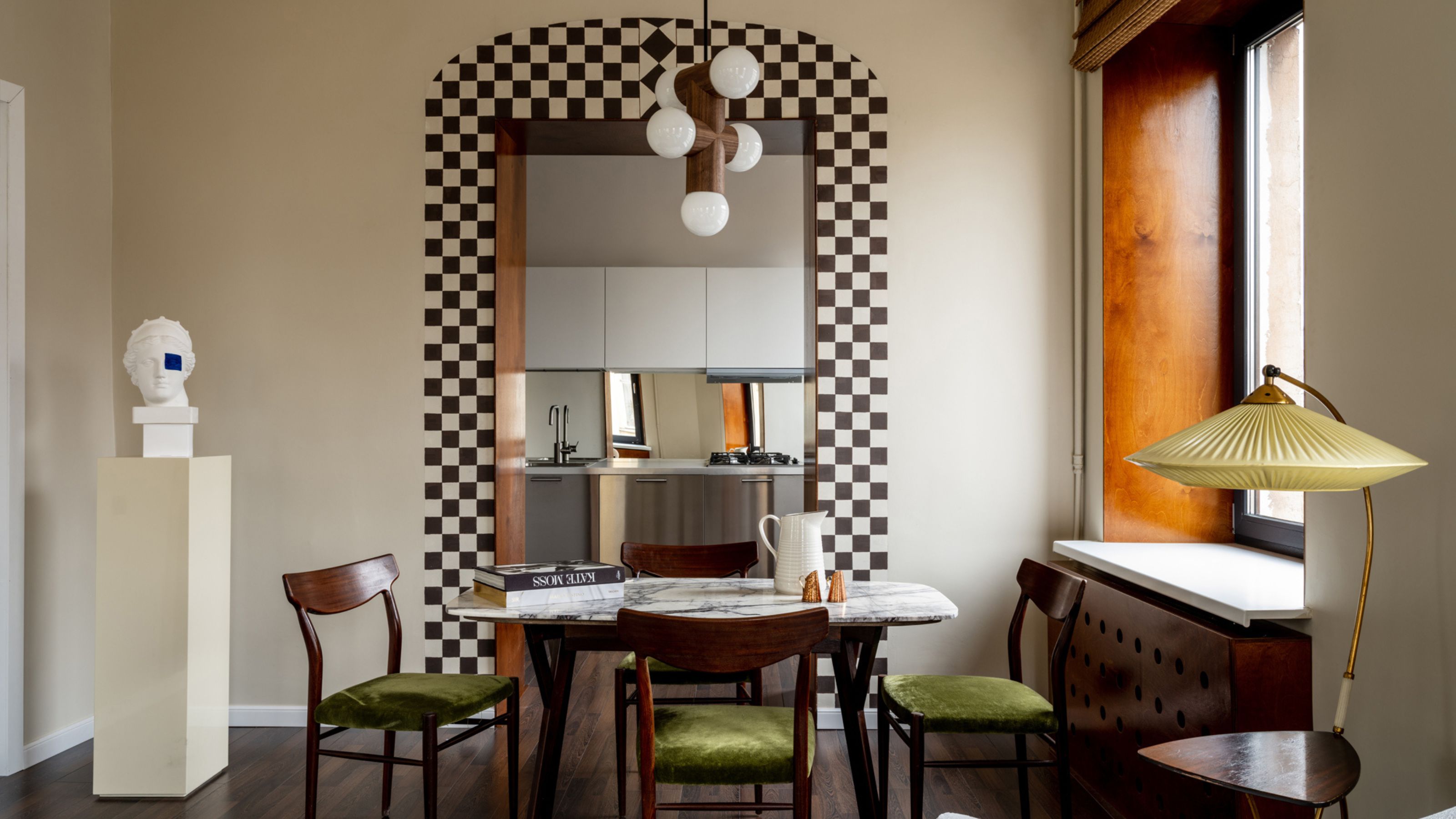
The Livingetc newsletters are your inside source for what’s shaping interiors now - and what’s next. Discover trend forecasts, smart style ideas, and curated shopping inspiration that brings design to life. Subscribe today and stay ahead of the curve.
You are now subscribed
Your newsletter sign-up was successful
Knowing how much paint you'll need for a room is never a straightforward calculation, which is why we've all been in that tough situation: after redecorating your space, you find yourself left with an awkward amount of paint still in the tin — too little for another full project, but too much to simply throw away.
But even if you were to, knowing how to dispose of paint properly isn't always so straightforward either. And while it's wise to keep a small amount of your main wall color for touch-ups in the future, it's easy to become inundated with almost-empty paint tins... likely full of paint that's gone bad.
Thankfully, there are plenty of small paint idea projects that can make great use of your leftover paint. Best of all, they’re accessible for all skill levels, requiring only the paint you already have and a bit of creativity. Not only will it prevent waste, but it's the perfect excuse to add a unique, custom touch to your home.
We've found nine DIY paint projects you can achieve with just a small amount of paint, to save you from dooming your leftovers tins to dry out on your garage shelves.
1. Create custom wall art
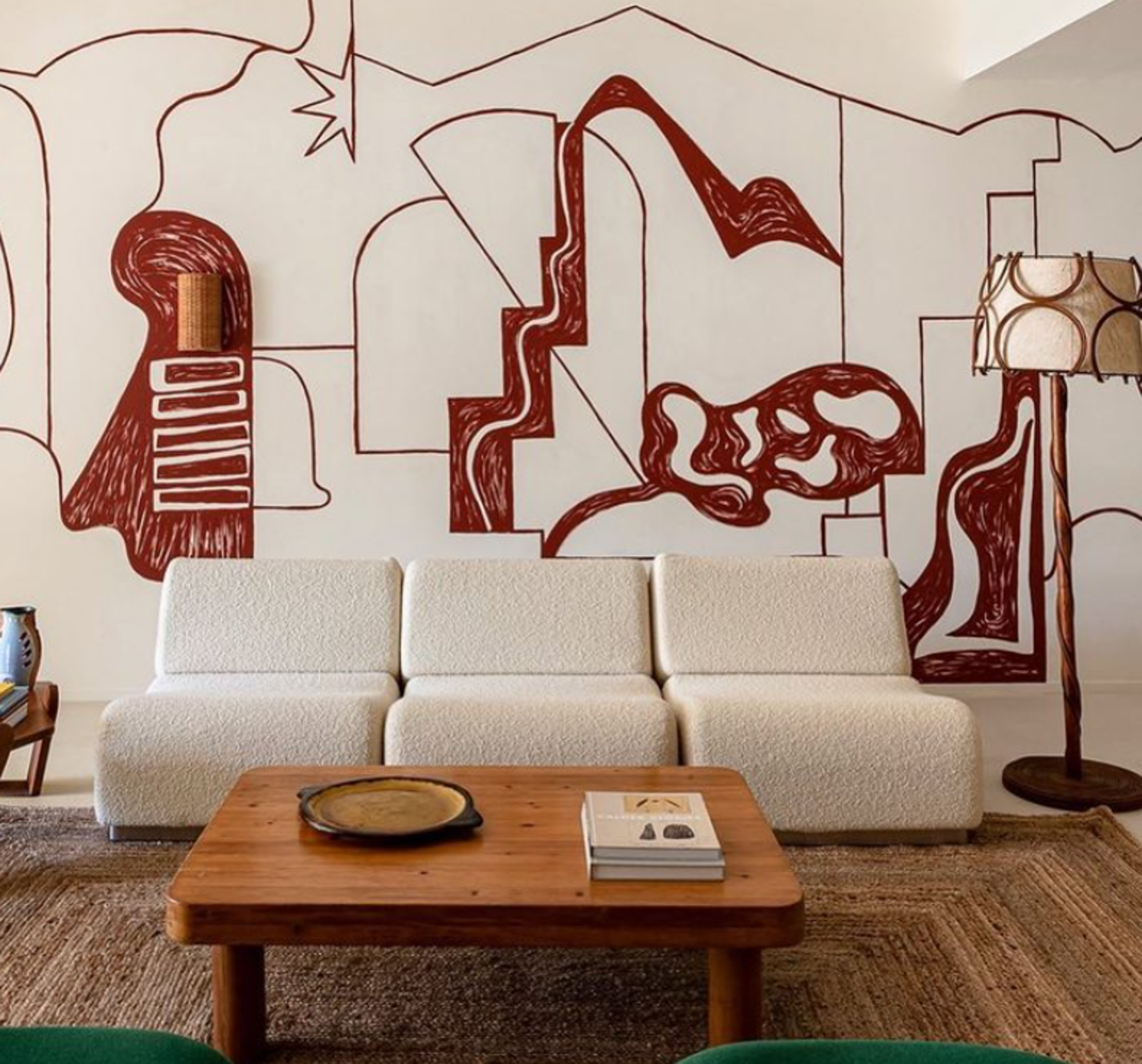
It's no secret that wall murals were a big trend last year (and continue to be so), and a bit of leftover paint is the perfect excuse to have a go at hand-painting your own unique design. Whether you choose to paint onto a large canvas (available at Amazon) or directly onto your wall is up to you — but remember, it's just paint, and you can always paint over afterwards.
Whether you go for a monochrome design, or experiment by mixing and layering different colors together, it's sure to make a truly unique statement in your space.
2. Hand-Painted Furniture
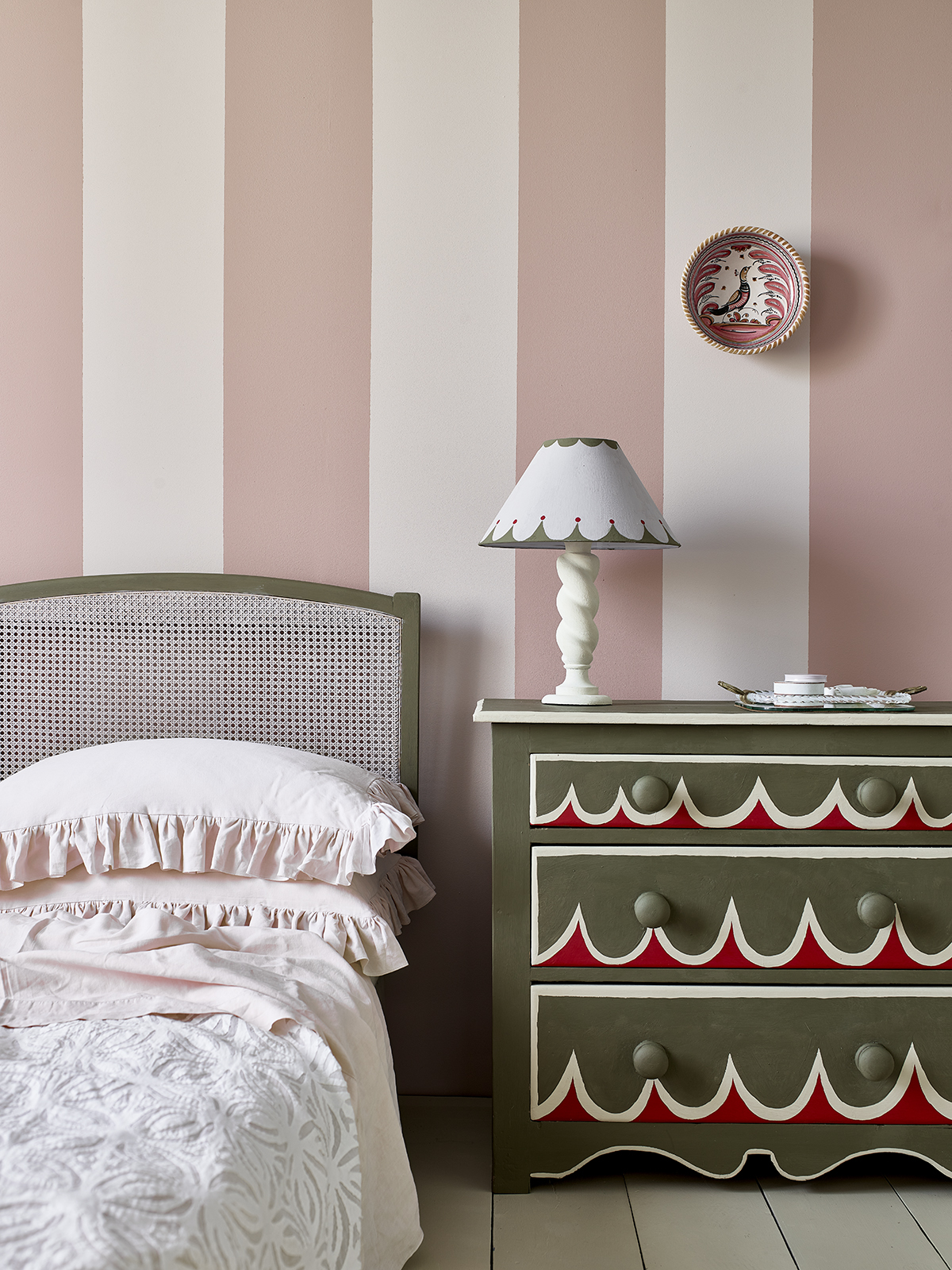
One creative way to use your leftover paint is by adding hand-painted accents to transform plain furniture into one-of-a-kind statement pieces.
The Livingetc newsletters are your inside source for what’s shaping interiors now - and what’s next. Discover trend forecasts, smart style ideas, and curated shopping inspiration that brings design to life. Subscribe today and stay ahead of the curve.
"Whether you’re adorning a wooden chair with dainty floral motifs or painting geometric patterns on a chest of drawers, a little paint can go a long way," says Seth Miles of Groovy Hues Paint. "Leftover paint is ideal for small-scale projects like this, and the possibilities are endless."
If you're not feeling confident with going free-hand, there are plenty of amazing stencils on Amazon that can help create consistent, professional-looking designs. We've even seen a complete nursery makeover that used stencils to create a bespoke wallpaper-look.
3. Upcycle Old Lamps
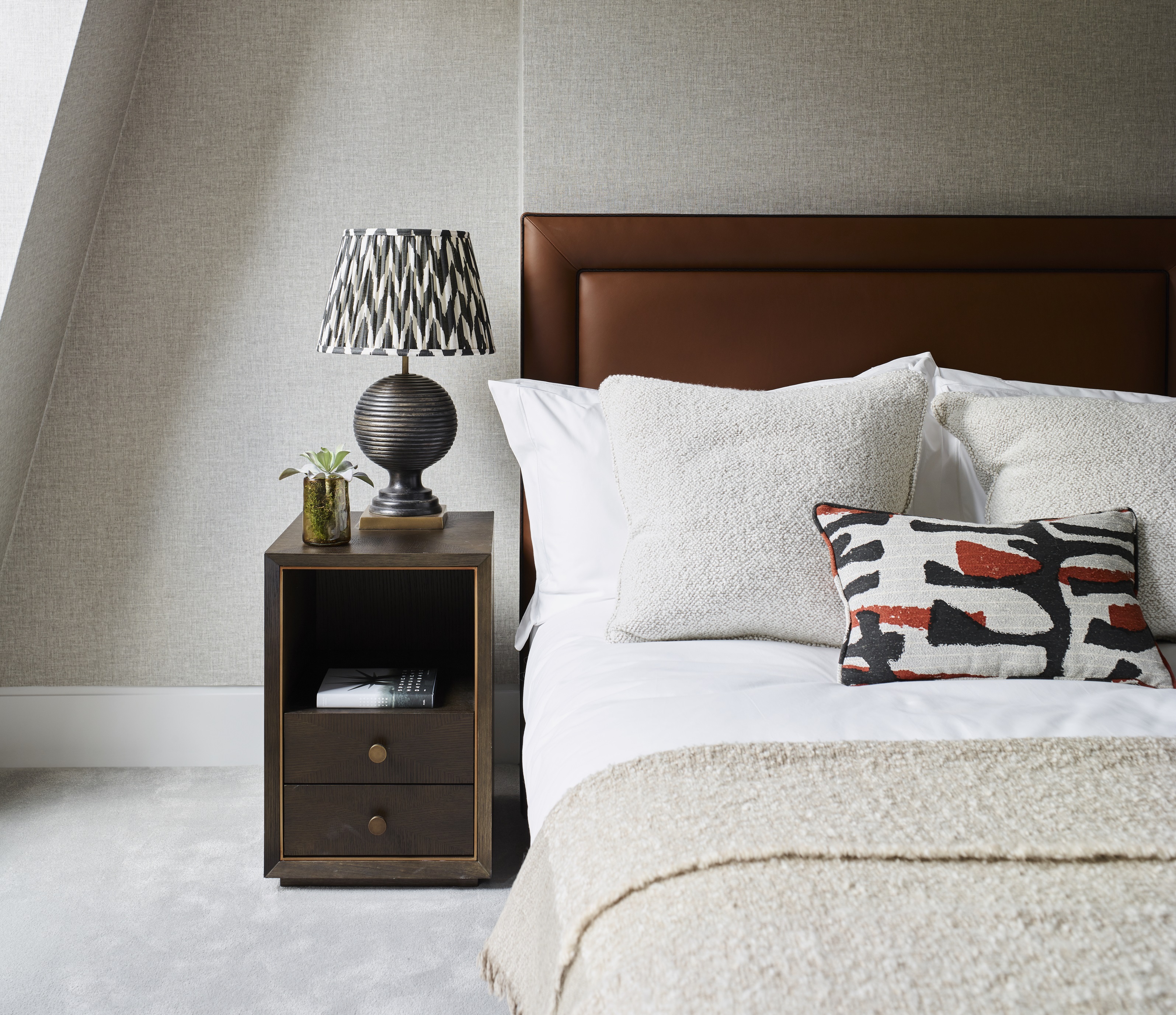
Give your old lamps a new lease of life with a fresh coat of paint. Use leftover paint to update the lamp base or even the fabric lampshade itself.
"For the base, bold, solid colors can add drama, while metallic paints give a sophisticated sheen," says Kriss Swint, design lead at Westlake Royal Building Products. "Try adding patterns on lampshades, stripes, polka dots, or freeform shapes, as these completely transform how the light interacts with the room."
We’ve tested multiple paint brushes on the market, and we like the Hamilton Prestige Pure Black Bristle 3pce Paint Brush Set from Amazon for projects like this. These brushes provide a great spread and release when painting, leaving a smooth finish with no lines or runs.
4. Add an unexpected detail
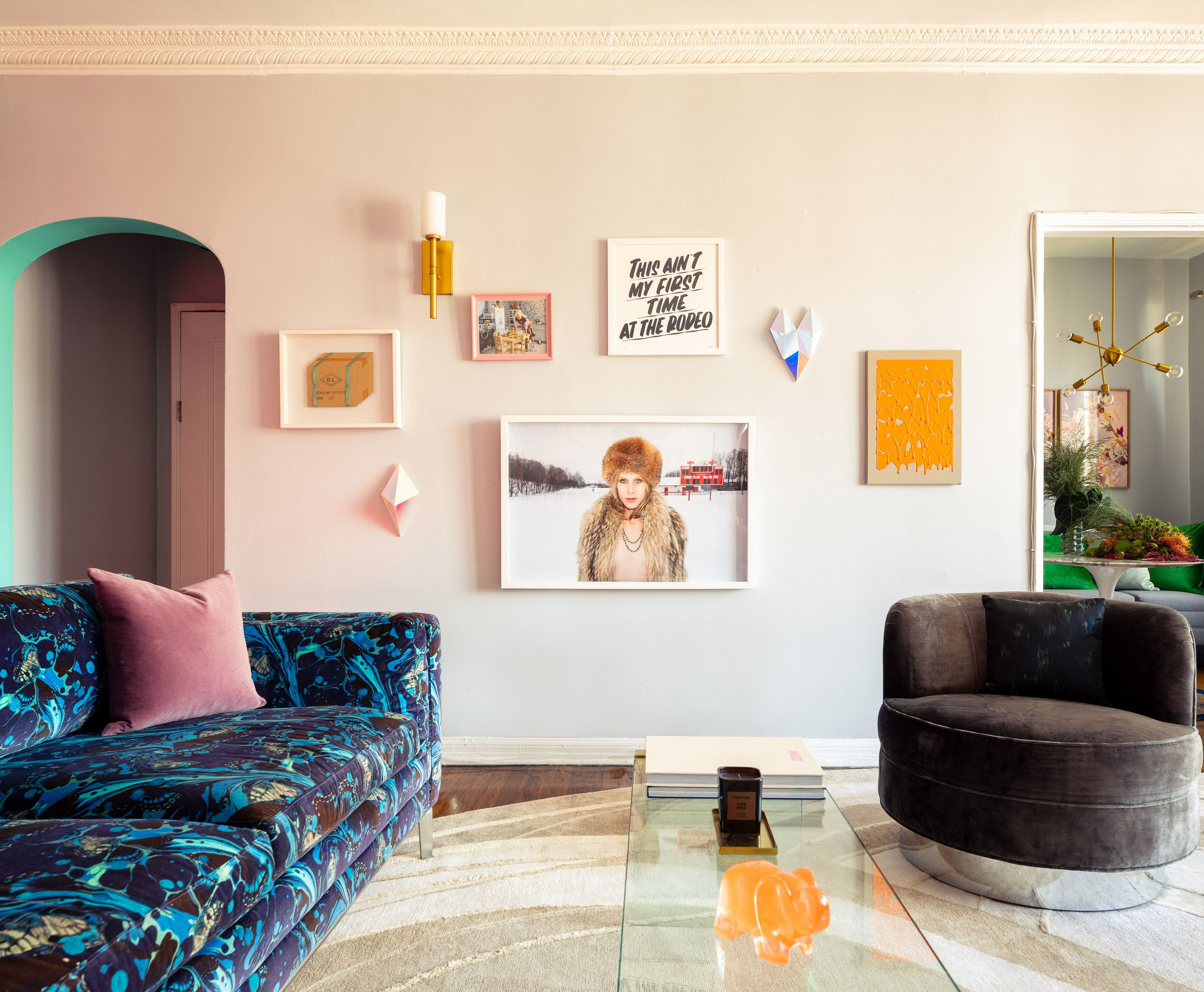
If you're working with a largely neutral scheme, introducing a flash of color by painting an architectural detail can be surprisingly effective. This could be a feature alcove or a step, but it works particularly well around doors and thresholds.
With leftover paint, you could design a creative door trim idea into your scheme, paint the edges of a door for an unexpected pop of color when it's open, or try an idea like interior designer Davide Casaroli, who introduced a flash of turquoise around an arched door in this apartment.
"It was all about balancing colors," Davide tells us. In this colorful scheme, the turquoise draws the eye to the hallway, while picking out a small highlight from artwork on the gallery wall.
5. Accentuate a Gallery Wall
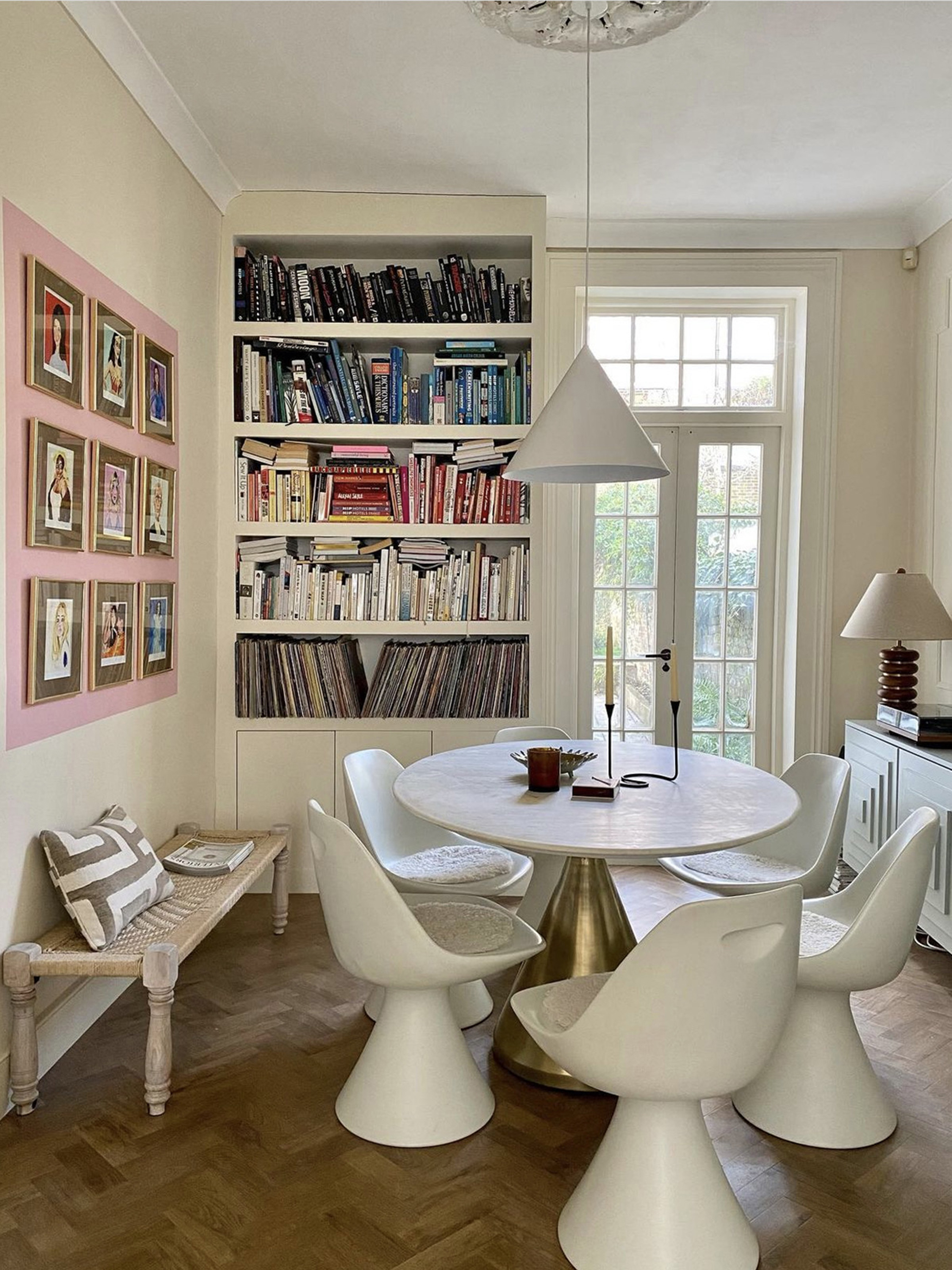
Leftover paint is perfect for color blocking in your home, but creating a geometric wall mural isn't to everyone's taste. So how can you introduce color blocking in a simple, yet sophisticated way?
Interior stylist and blogger Bianca Hall of French For Pineapple chose to use a color block to frame the gallery wall in her dining room. Not only does this idea introduce a flash of color into the neutral scheme, but it also works to group the individual frames together, as though a larger piece of art.
6. Create your own stone paint
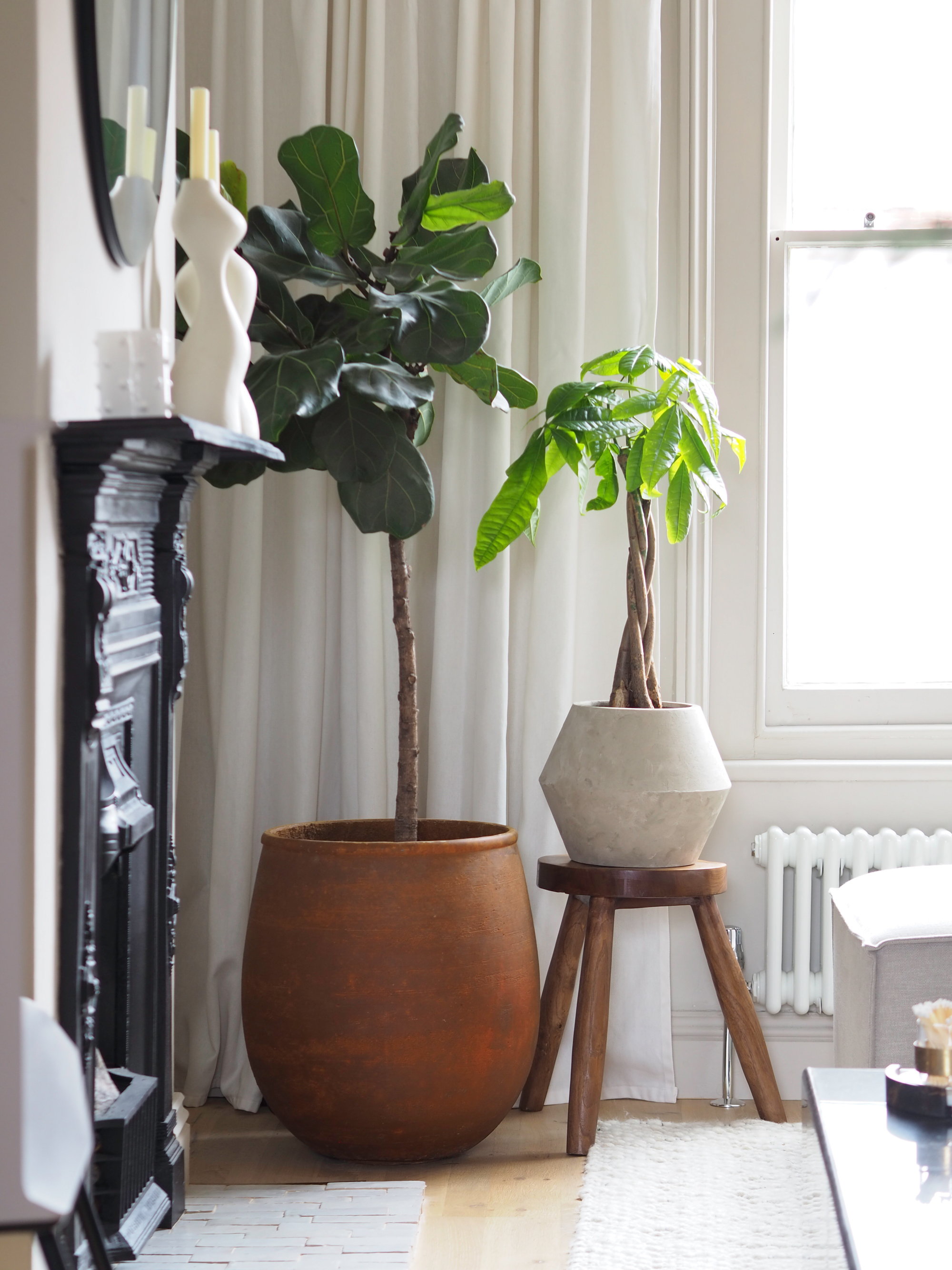
One of my own favorite uses for leftover paint is to give vases and plant pots a small makeover if I tire of their color or finish. However, with the trend for organic modern style all about introducing textured finishes through accessories, sometimes a purely painted finish can feel a bit flat.
There are a few tricks to try when looking to create textured paint that perfectly suits using up your leftovers. The first is the baking soda trick, whereby you mix your paint with a teaspoon of this kitchen ingredient to form a paste-like paint that has a brilliant texture when applied to a surface. My personal favorite? Creating a stone effect paint by mixing leftover paint or samples with a little sand. This creates a gritty finish that recreates the look of rough stone or concrete, as you can see from the wooden plant pot, above on the right, painted with a DIY stone effect paint.
7. Decorate Inside a Cabinet or Closet
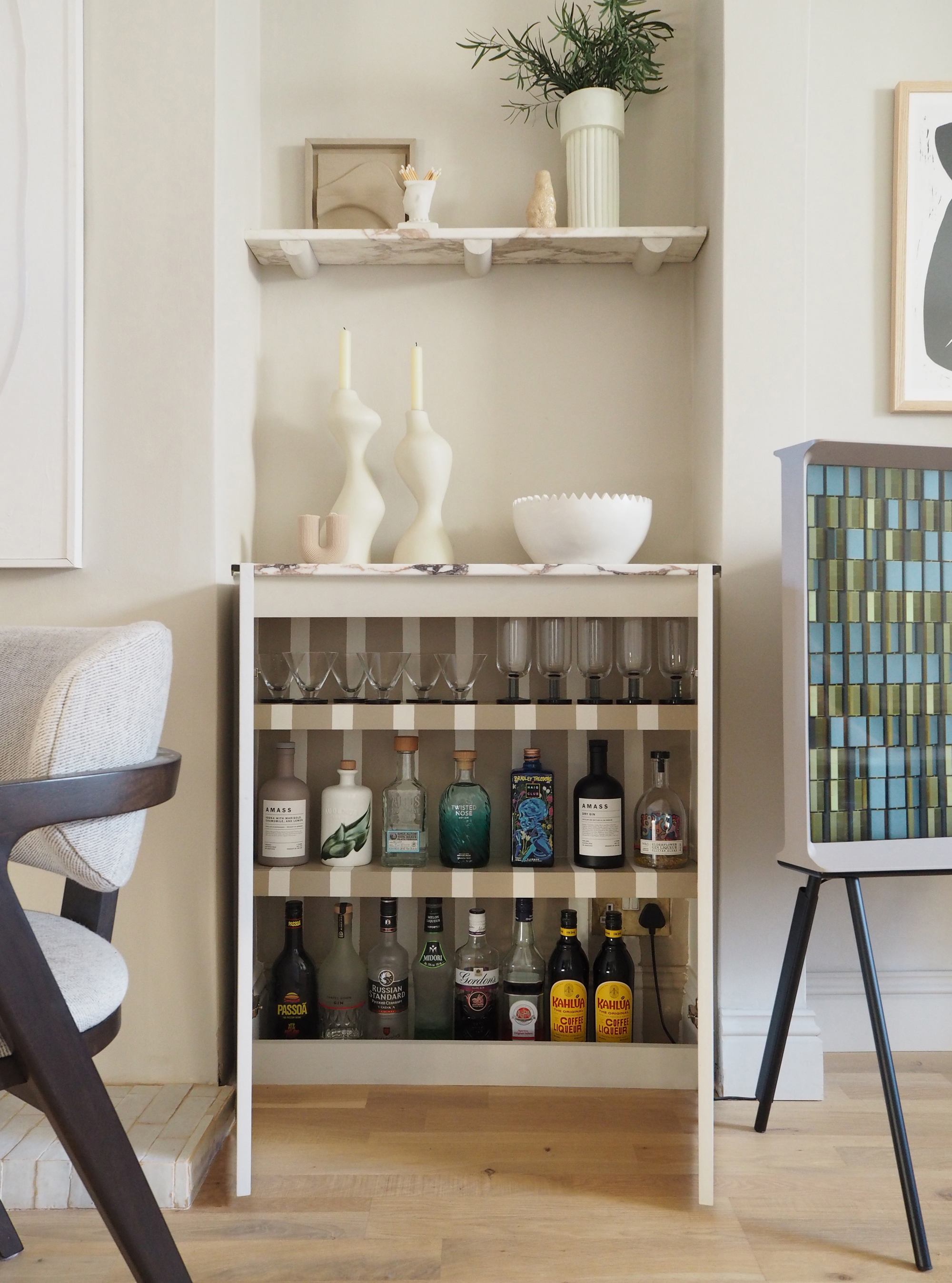
Every type of interior style can benefit from introducing something unexpectedly joyful, even if it's not visible at first glance of your room. That's why you should consider using leftover paint to introduce a new color inside millwork or cabinets, only revealing itself when the doors are flung open.
For my own home, the obvious space to introduce this idea was in this small home bar idea in our living room. It's only really used when guests are around, making for a surprise that can be appreciated at just the right moment. With just a small amount of Farrow & Ball's London Stone left over to paint the cupboard, I painted these chunky stripes to ensure the paint went far enough, while creating a more interesting design detail.
8. Paint an on-trend checkerboard pattern
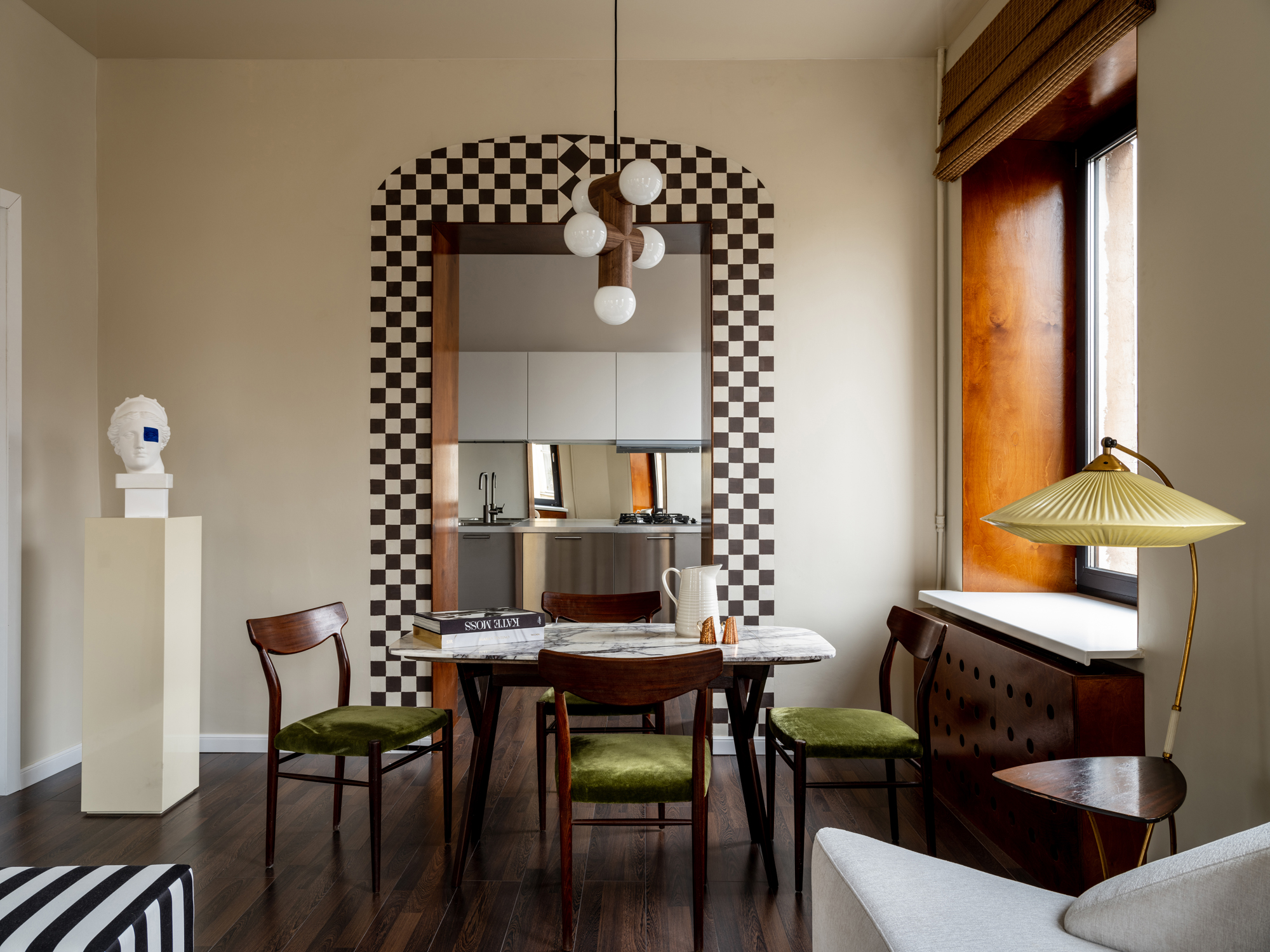
The checkerboard print trend has firmly cemented itself as an enduring and timeless style, whether it's in floor tiles, rugs or other textiles like blankets and cushions. However, it's also a relatively easy pattern to introduce with paint.
This checkerboard door arch is one of our favorite DIY weekend projects, created freehand by interior designer Tim Veresnovsky to bring some character to his own dining room. However, this pattern could be introduced anywhere on a similarly small scale as a way to use up leftover paint. Why not try it as a pattern behind a picture frame or gallery wall?
When it comes to making a good job of this project, follow our guide to how to paint a checkerboard floor, whatever the scale of your checkerboard design.
9. Decorate Doors and Trims
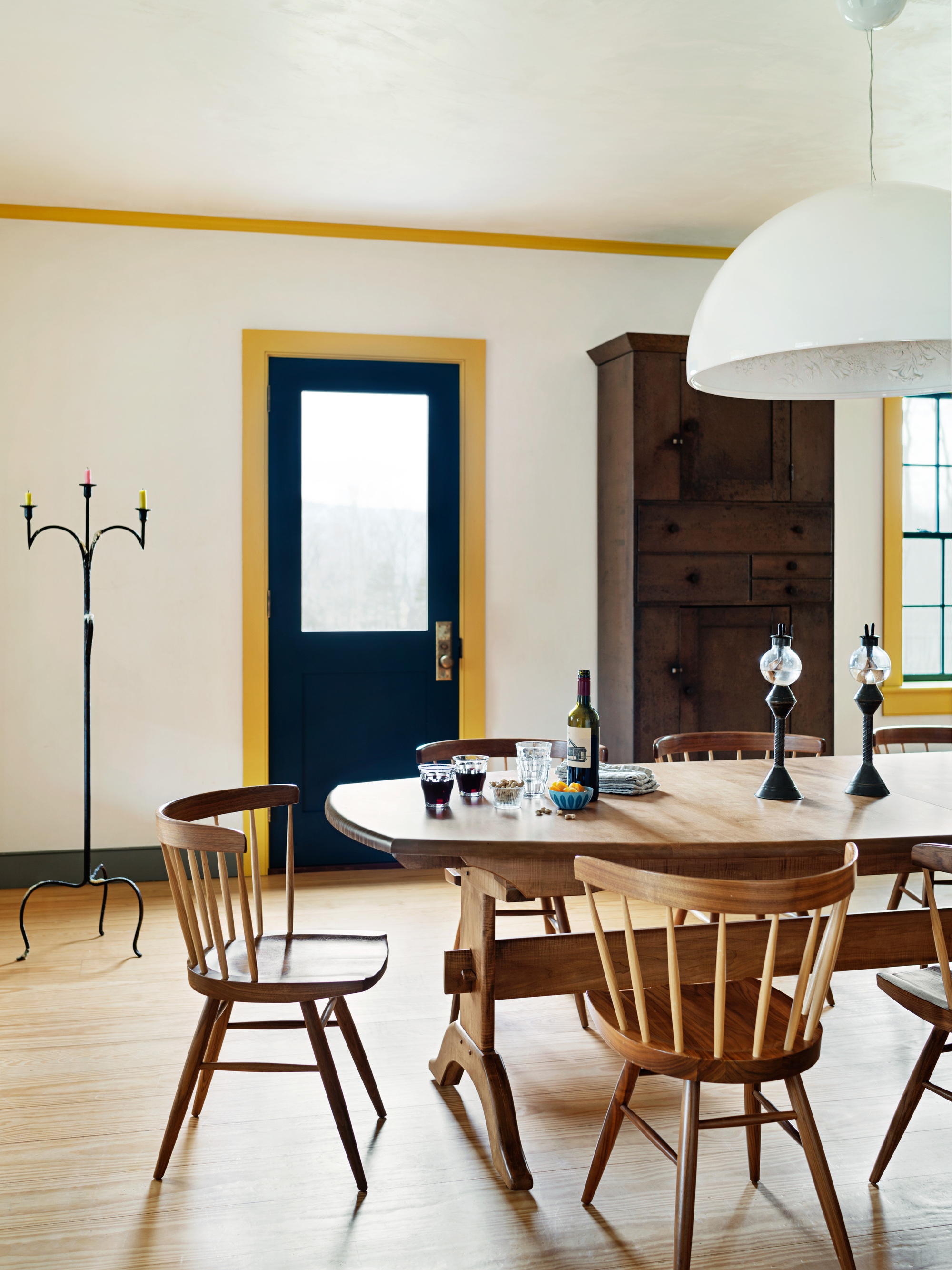
Finally, you can use your leftover paint to revitalize your interiors by painting small sections of your doors or framing details. Highlighting trims, molding, or panels with leftover paint can give your space a polished, bespoke feel without overwhelming the rest of the room or clashing with other decor.
If you’re feeling experimental, try a contrasting shade to make architectural details of the door or wall really stand out.
FAQs
Can I do DIY projects with leftover emulsion paint?
Whether you're planning a project with leftover paint or sample pots, more often than not you're going to be dealing with emulsion. This type of paint finish is what you'll traditionally paint all walls with, and it's the type of paint used in tester pots.
If you're leftover paint project is for painting walls, matt emulsion is perfectly suited, but if you're painting furniture, millwork or anything that needs to be a little more durable, emulsion isn't always ideal. My top tip? Prime your project first with a quick primer (this will help your leftover paint go further, too) and then finish with a matt clear varnish, like this top coat from Amazon, which will make it more hardwearing.
Repurposing leftover paint is not only a fun way to improve your DIY skills, but it’s also a sustainable practice that reduces waste. Next time you finish a painting project, don’t toss out that half-full can. Instead, grab a brush and let your imagination run wild.

Luke Arthur Wells is a freelance design writer, award-winning interiors blogger and stylist, known for neutral, textural spaces with a luxury twist. He's worked with some of the UK's top design brands, counting the likes of Tom Dixon Studio as regular collaborators and his work has been featured in print and online in publications ranging from Domino Magazine to The Sunday Times. He's a hands-on type of interiors expert too, contributing practical renovation advice and DIY tutorials to a number of magazines, as well as to his own readers and followers via his blog and social media. He might currently be renovating a small Victorian house in England, but he dreams of light, spacious, neutral homes on the West Coast.
- Seraphina KypriosContributing Editor